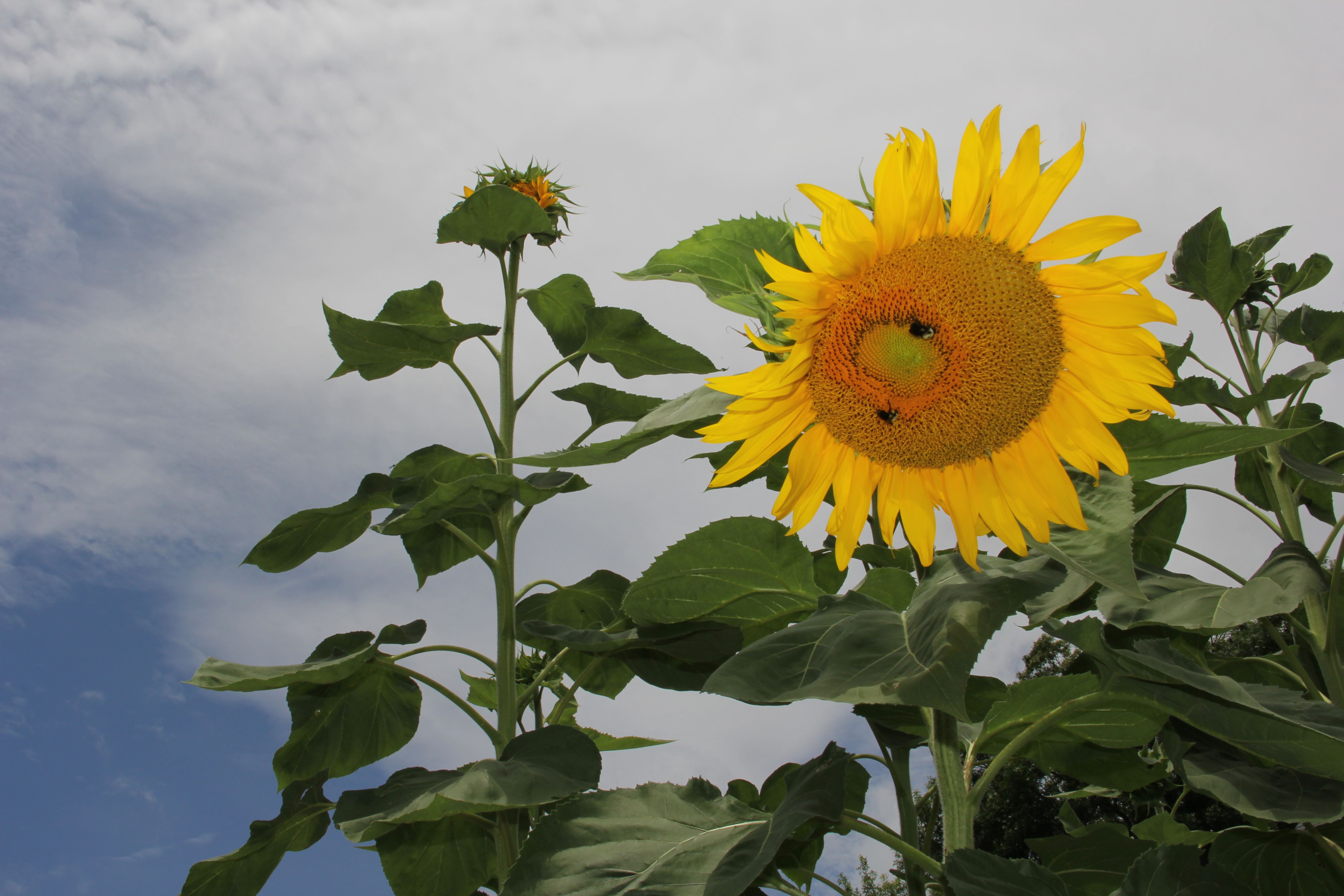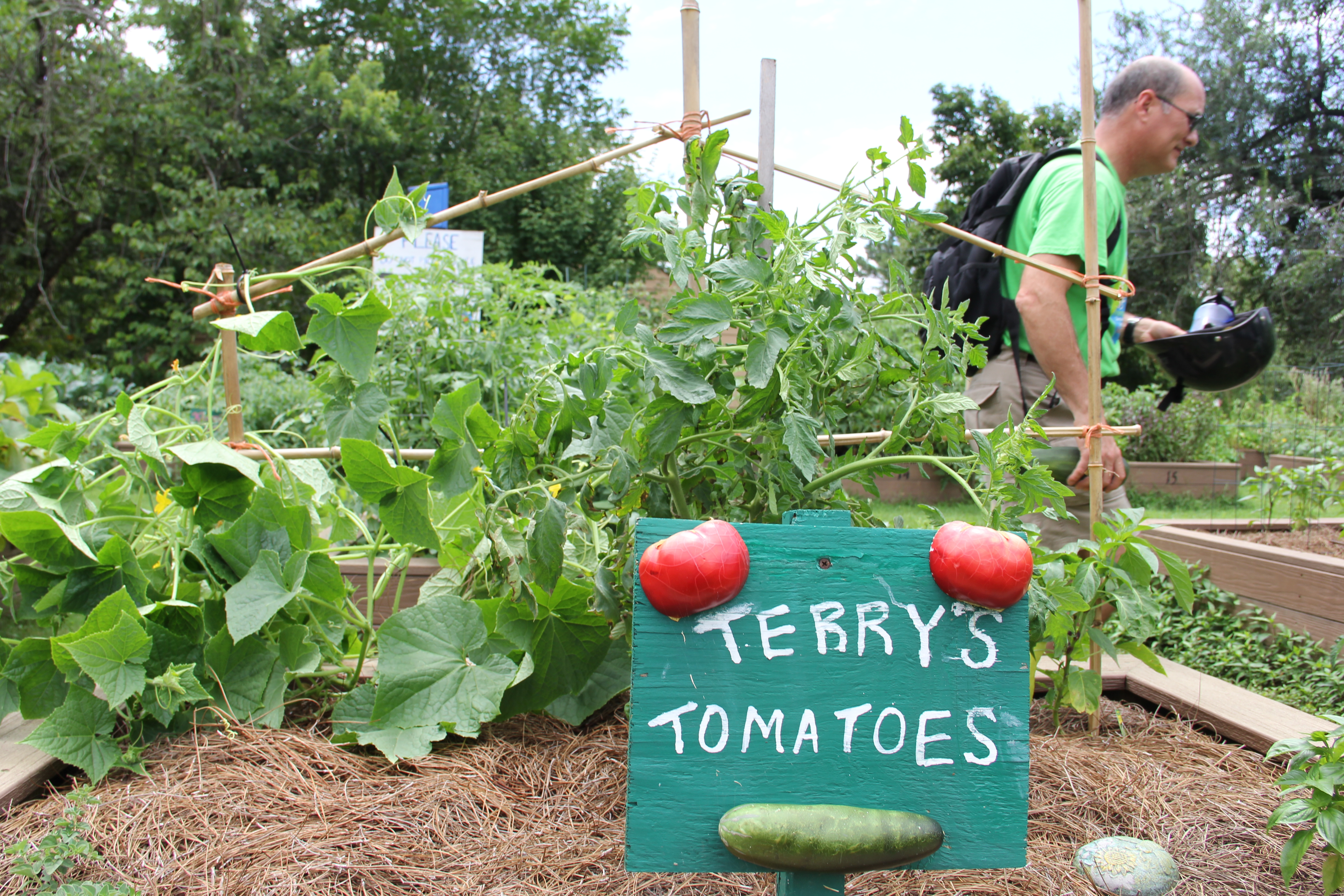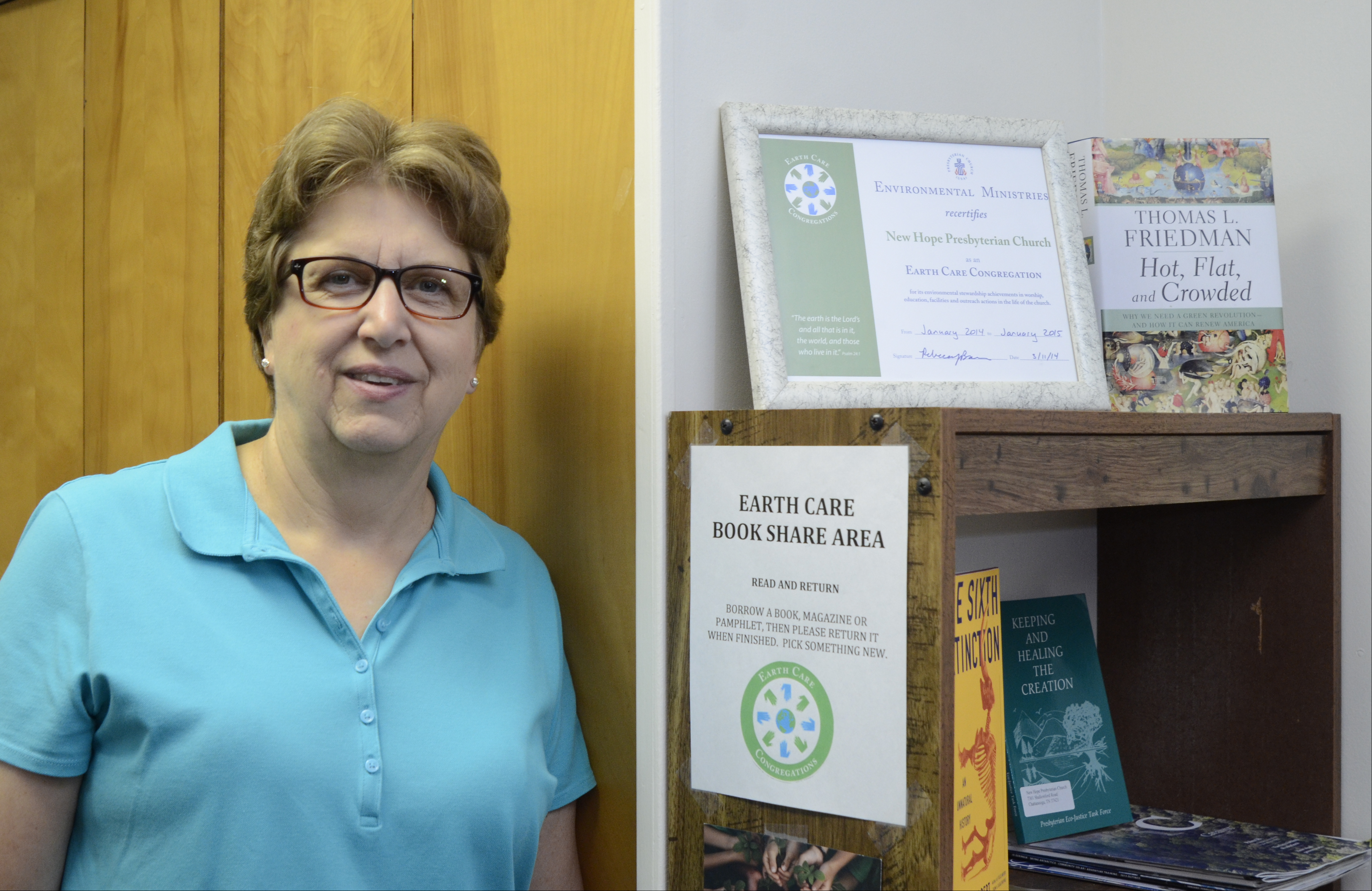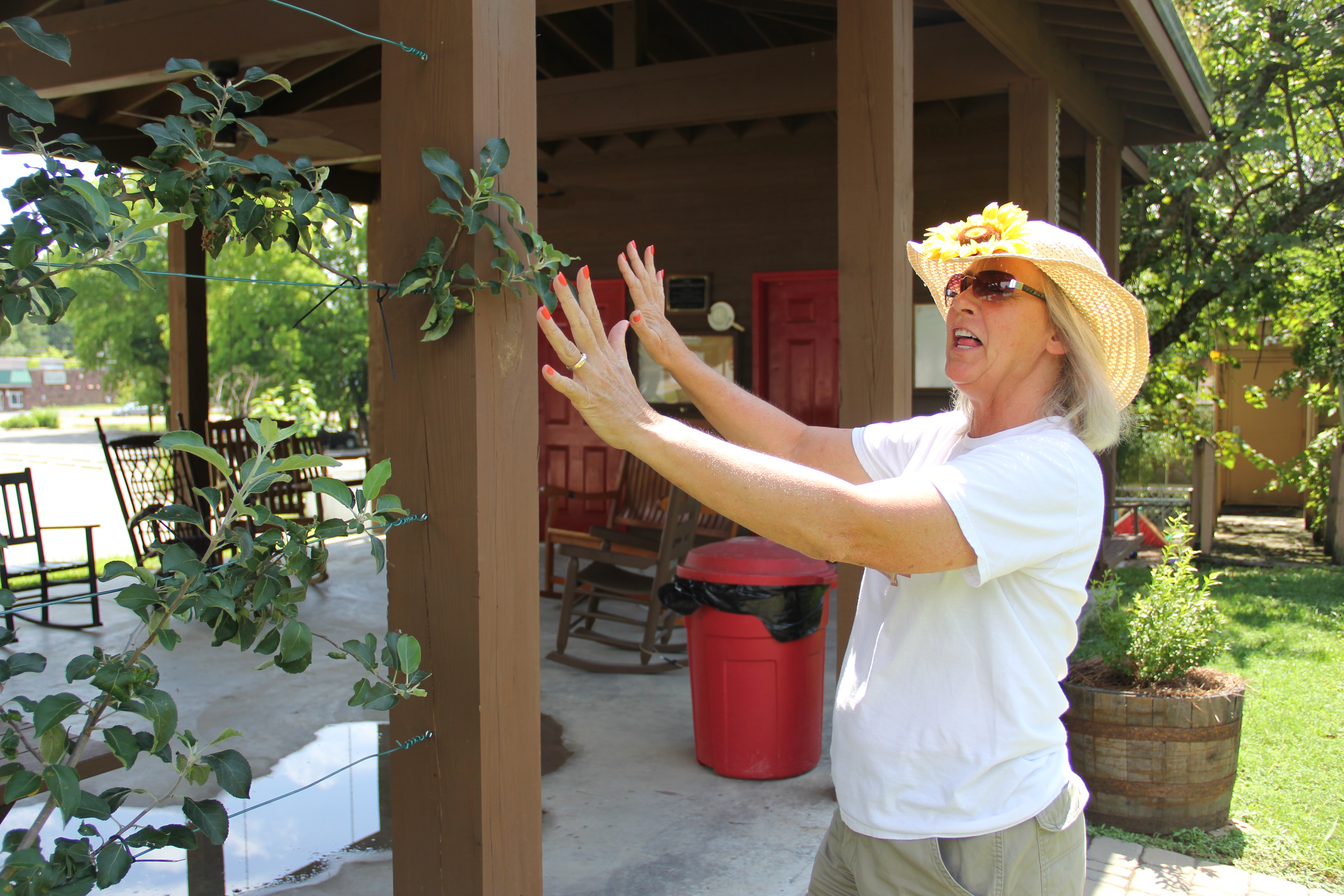It started with an outdoor garden to attract wildlife. Then came a new lighting system to reduce energy use. A recycling program followed that.
And now the Unitarian Universalist Church in Chattanooga has completed the installation of several solar panels - the first ones on a church in the Chattanooga area.
"We have been working on this for three years. We did our research. We raised the money within our congregation to pay for the project," says church member and environmentalist Sandy Kurtz, who spearheaded the earth-friendly project.
After jumping through a "bunch of hoops" to get permits from TVA and EPB, the church is now officially "on the grid," Kurtz says.
In a news release, Buck O'Rear, church vice president of resources, said the electricity provided by the panels is not being used by the church, "but instead will be sent to the EPB/TVA grid for general distribution." TVA is buying the electricity for four cents per kilowatt hour, he said.
The installation cost about $20,000, Kurtz says, and is part of what she hopes is Phase 1. "We would like to eventually have enough panels to supply our total electricity needs for the church," she says.
The Unitarian church is one of several in the area now involved with "green" initiatives that include farmer's markets, recycling efforts, energy efficiency programs and community gardens. Nationwide, many denominations are pushing programs to help their churches go green as an element of their faith practice.
The United Methodist Church is sponsoring "The Green Church Initiative," which asks the question: "Have you ever thought of recycling as an act of worship?" The Episcopal Church USA has a national program to help its churches in "preserving the sanctity of creation," while the National Black Church Initiative has started an effort in its churches "to draw attention to the problem of global warming, the concept of which the black church has accepted for over 20 years," according to NBCI's website.
In Chattanooga, New Hope Presbyterian Church has its "Earth Care Team," a group dedicated to being "stewards of God's earth," says Rosie Sanislo, who founded the local team.
"My concern for better green living is based on practicing my faith through caring for creation," she says. "Scripture and our reformed faith tradition call humans to be stewards of the earth - God's good creation. Each of us has the power to make choices that reflect our faith commitments, and be better caretakers of the precious resources God provides. We have a responsibility to restore the creation we have used and abused.
"The Earth Care program designed for Presbyterian Church (U.S.A.) churches is just one way we can demonstrate our commitment to stewardship of the Earth and share our love for creation with our congregation and the community," she says. "Our church family provides a place for education, discussion and practice of greener living that we can then carry into our homes, neighborhoods and businesses."
Nationally, the Presbyterian Church (U.S.A.) has an Environmental Ministries program that offers a certification process to help churches create and maintain green projects, she says.
"Our church governing body, the Session, also endorsed an 'Earth Care Pledge' that accompanied our application for certification as an Earth Care congregation," Sanislo says. Under the pledge, a church must accomplish a specific number of actions toward caring for the Earth in four categories, including worship, education, facilities and outreach. Each year, the program audits the churches to make sure they're still adhering to the rules.
"Our faith urges us to strive for eco-justice: defending and healing creation while working to assure justice for all creation and the human beings who live in it," according to presbyterianmission.org.
The dozen members of New Hope Presbyterian's Church Earth Care Team oversee environmentally friendly projects such as recycling paper, cardboard, plastic and cans. They also have limited the use of Styrofoam products and instead use washable communion cups and coffee cups, she says. The church also purchases and serves fair-trade coffee, which is grown in developing countries by farmers who are fairly paid and encouraged to use sustainable farming practices.
The church also installed energy-efficient heating and air conditioning systems and windows and a tankless hot water heater. Its Vacation Bible School has an Earth-Care theme and its playground equipment contains 25 percent recycled materials. And, by the end of this year, the group plans to develop a rain garden to absorb and clean stormwater runoff from the church parking lot, Sanislo says.
The parishioners at Grace Episcopal in Brainerd are showing the community that they, too, are stewards of the earth. In addition to jumping on the recycling bandwagon, they started the Brainerd Farmers Market and Community Gardens at their church, located on the corner of Brainerd Road and Belvoir Avenue.
"It is the mission of Grace Church as stewards of the 'creation' to offer organic and substainably grown produce to our community," says market Director Catherine Durham. The market, held in the church parking lot every Saturday from 10 a.m. to noon through late December, provides organic produce, eggs, dairy and meat products grown within 50 miles of Brainerd.
Grace Episcopal Church is located in a racially and economically diverse neighborhood where there are few public parks and green spaces, Durham says.
"(The church) sees providing such respite as an essential part, not only of godly stewardship, but also of our church's basic mission," she says.
The church grounds are a certified National Wildlife Federation Backyard Habitat, containing the required water, food, shelter, a place to raise young and sustainability, she says. "The grounds also received an award from the Chattanooga Tree Commission in 2012 for our care of mature canopy trees."
The church's gardens include a Community Garden, open to everyone, not just church members, where people may pick vegetables, strawberries and blackberries, she says.
"The community garden's pavilion has a living, 'green' roof," Durham says. "Additionally, the church's two butterfly gardens are certified with the North American Butterfly Association, and were included on butterfly garden tours during their biennial convention here last month."
Unitarian Universalist's green project began with the formation of the Green Sanctuary Initiative, a group of church members, led by Kurtz, who wanted their church to be an accredited "green sanctuary" by the denomination.
"We began with small projects," Kurtz says, including the wildlife-drawing garden on the church's eight acres of wooded land and an herb garden that the church uses when it's serving food.
"We took steps to reduce energy use by changing the lighting system and the way we operated the church," she continues. "We set up a recycling program, and we got rid of all Styrofoam products at our potluck dinners. People started bringing their own utensils and then took them back home to wash."
Part of its go-green mission is to encourage other churches to do the same, Kurtz says.
"Every denomination does something to help their fellow man," she says. "Our guiding principles promote respecting the web of life. We bear a responsibility that all life does well and it benefits us all. We are reducing our carbon footprint, and with our solar panels, we're doing something to make a difference."
Contact Karen Nazor Hill at khill@timesfreepress.com or 423-757-6396.




